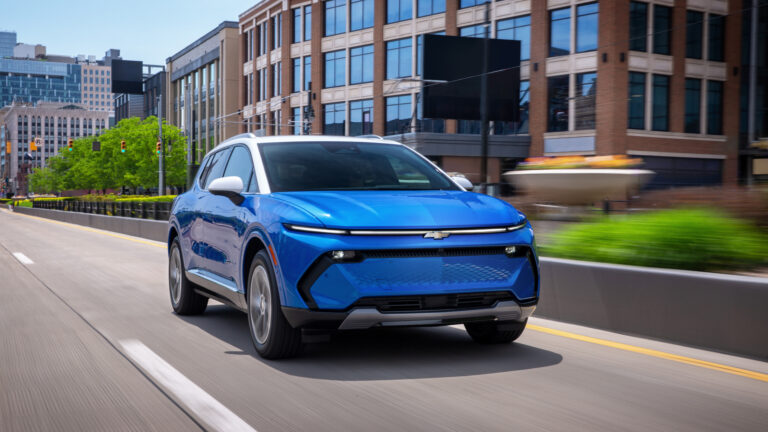
(Note: This is a completely different problem to the one the battery packs in the Chevrolet Bolt faced; those sparked a huge and costly recall due to badly folded cell tabs that could start fires.)
And those 22 new EVs? At best, GM has half that many offerings for North America in 2024, as long as we count hand-built ones like the Cadillac Celestiq.
But GM’s Ultium-making has mostly been corrected now. In fact, despite the loss of the sub-$30,000 Bolt from showrooms, GM has seen spectacular growth in its EV sales. This is also despite an overall reduction in total vehicle sales of 2 percent. GM grew its EV sales by more than 60 percent year over year for the third quarter of 2024 and looks set to displace Ford as the second-best seller of EVs in the country after Tesla, with around 200,000 EVs sold. It has even started delivering the $35,000 Equinox EV to dealerships.
No one calls it that but you
Despite this, Ultium as a brand hasn’t caught on beyond its use by GM staff and automotive journalists, so it’s headed for the same trash heap as Pontiac and Oldsmobile.
“It now makes business sense to transition from one-size-fits-all to new program-specific batteries,” said Kurt Kelty, GM’s vice president for battery cell and pack. “As we do so, we will sunset the brand name Ultium for our EV batteries and technologies. Ultium will continue to be used in reference to our joint venture manufacturing sites and other facilities. But as we enter the next phase of our journey, the time is right to begin this transition.”
The automaker says it will build a new battery R&D facility at its Warren Tech Center in Michigan, which will look into cylindrical and prismatic cells as well as pouches, plus alternative battery chemistries. And the second-generation Chevy Bolt will now be powered by lithium iron phosphate (LFP) batteries instead of NMCA cells.
